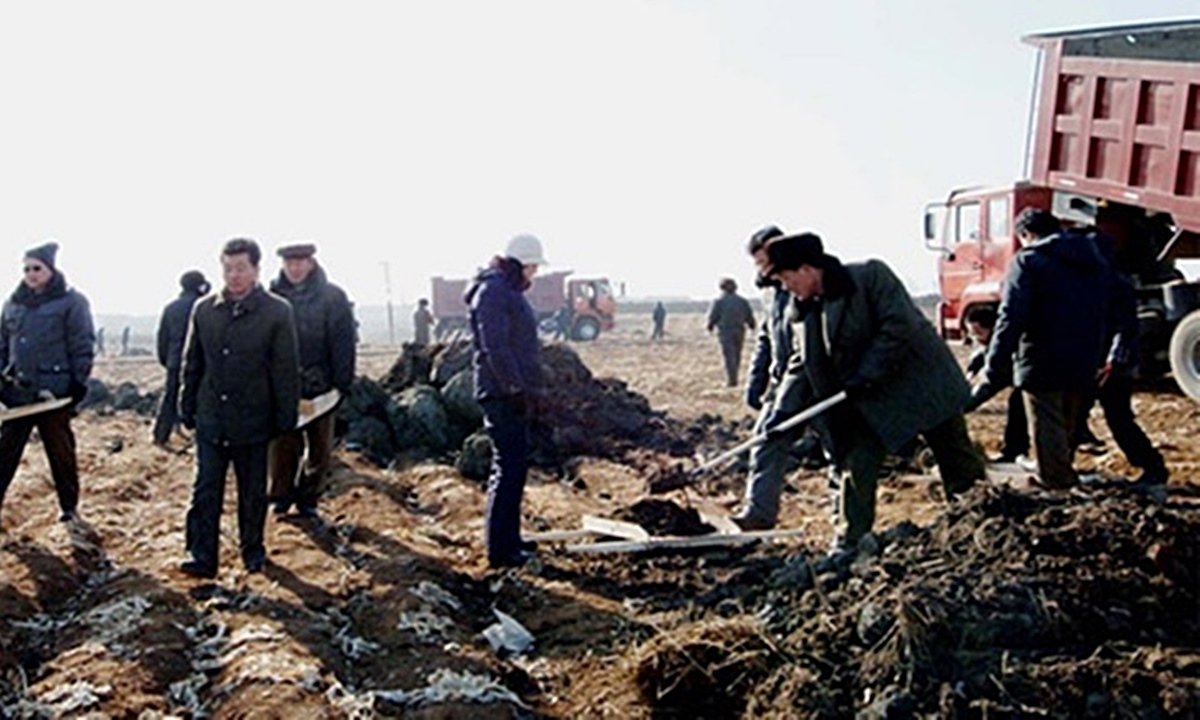To herald the new year, the North Korean authorities gave people their first assignment: the “manure battle.” A source told Daily NK that this year the workload has increased from that of last year.
The source, who is based in North Hamgyong Province told Daily NK on Jan. 7 that “according to the higher-ups at the end of last year, the manure battle would begin from the start of this year,” and that “from Jan. 4, according to their jobs and inminban, [local residents have] begun producing fertilizer from human waste.” They had been recruited for the manure battle immediately after the solar calendar holidays (Jan. 1 – 3).
The source went on to say, “The new year’s compost assignment will be carried out intensively from Jan. 4 for ten days,” and explained, “Our assignment is to produce 500 kilograms per factory laborer and 150 kilograms per inminban over ten days.” In previous years, each laborer had been assigned around 100 – 300 kilograms.
North Korea promotes farming as a “universal foundation” and stresses that it is the first priority of a socialist economy. However, there is still an insufficient supply of the fertilizer necessary for farming. As a result, the local residents are commanded to produce compost every year under the name of a compost battle.

Since the Arduous March in the 1990s, when the country suffered from setbacks in fertilizer factory production and a chronic economic crisis, the government has been focusing on this area. To mark the new year, the entire country is being mobilized for manure production.
However, problems have continued to increase. Firstly, the local residents suffer each year from an absolute shortage of compost. As they were assigned to impossible amounts of production, compost thieves began running wild, and neighbors frequently had cause for conflict with each other.
The source said, “As the coronavirus emergency has made producing or importing fertilizer difficult, it seems that they have increased our assigned amount,” and pointed out, “In the end, the burden of gathering the fertilizer necessary for farming has all fallen on the shoulders of ordinary people.”
The source told Daily NK that, in the past, there were many cases of corruption. For example, farm officials received high-quality cigarettes, liquor, or bribes from locals in return for issuing certificates stating that the residents had already collected their assigned amounts of compost.
However, the atmosphere is said to be markedly different this year. It has been emphasized that there must be a departure from the practice of “reporting compost assignments through receipts.”
Instead, when the compost battle is completed, there are plans to have provincial party officials check the collected fertilizer and the amount of manure production directly and report it to the central government.
The source stated that “there seems to be a strong determination to break away from the perfunctory, slipshod way in which the manure battle had been carried out in the past,” and that “there are threats that this time, [the manure assignments] will not be passed over without ensuring quality and quantity.”
*Translated by Esther Ra

















